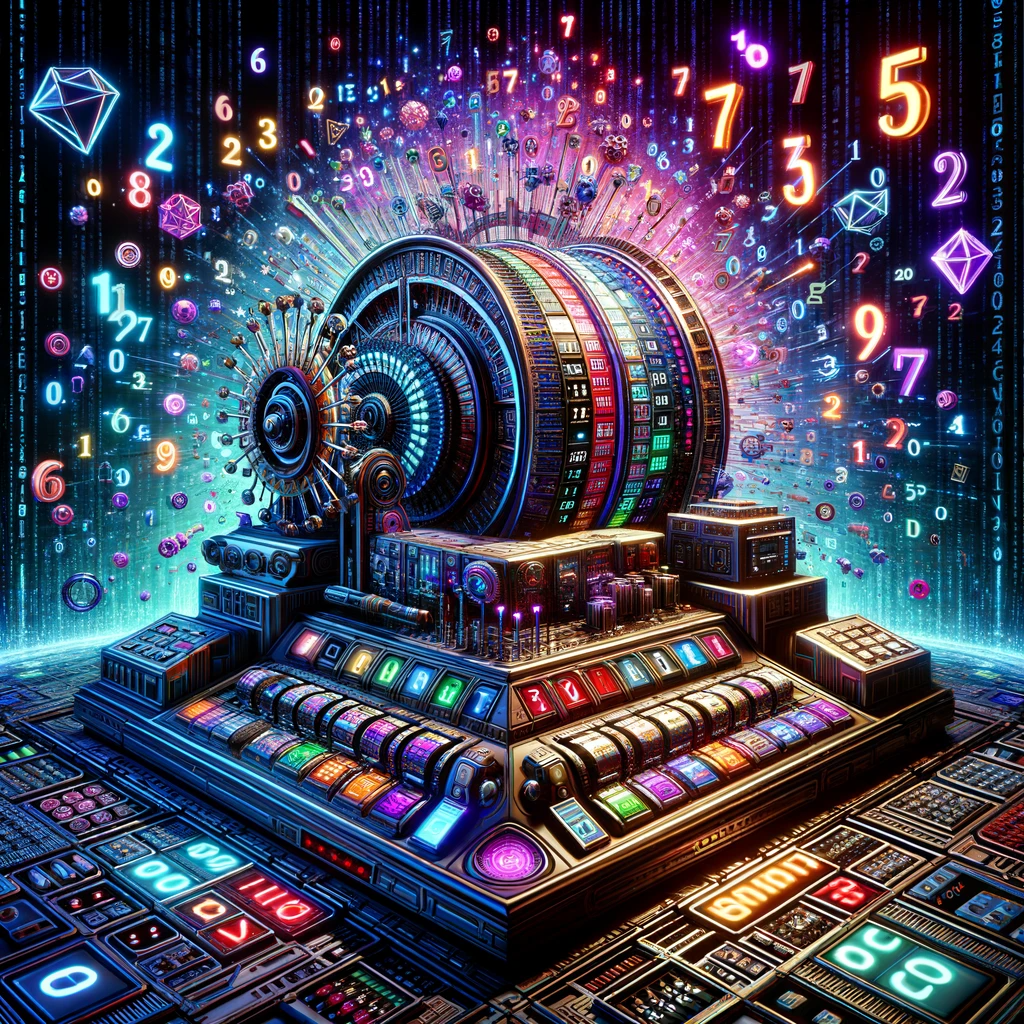What is an RNG in online gambling?
In computational mathematics and cryptography, Random Number Generators (RNGs) stand as pivotal elements. These gambling algorithms and devices are the heartbeat of unpredictability, a core principle leveraged across a spectrum of fields, from secure communications to the pulsing throngs of digital entertainment.
This random number generator deep dive will unravel the complexities and detail the critical significance of RNGs in our digital gaming era.
Intricacies of Randomness
The quest for true randomness is as old as the study of probability itself. Randomness signifies a state of chaos, absent of any order or predictability. RNGs aim to replicate this randomness, albeit within the constraints of deterministic machines and algorithms. This paradox lies at the heart of RNGs, blending the predictable nature of algorithms with the unpredictable essence of randomness.
RNGs Decoded: Pseudorandom and True Random Variants
RNGs are broadly categorized into two types:
Pseudorandom Number Generators (PRNGs)
PRNGs are algorithms that use mathematical formulas or pre-calculated tables to produce sequences of numbers that only simulate randomness. The determinism of PRNGs renders them predictable under certain conditions, particularly if the initial seed value is known. They are the workhorses in non-security-critical applications such as simulations and procedural content generation in games. Algorithms like the Mersenne Twister excel in statistical randomness and efficiency but falter in cryptographic security due to their deterministic nature.
True Random Number Generators (TRNGs)
TRNGs, in contrast, do not rely on a deterministic algorithm but on physical phenomena to generate randomness. This could involve the minute electrical fluctuations in hardware, atmospheric noise, or the decay of radioactive materials.
These sources are inherently unpredictable, providing the gold standard in randomness, especially for cryptographic applications like key generation and secure data encryption.
Applications
The utilization of RNGs is vast and varied:
- Cryptography: RNGs are the guardians of data security, ensuring that cryptographic keys are generated with high entropy and are thus resistant to attacks.
- Digital Gaming and Online Gambling: They are the arbiters of chance in digital games and gambling platforms, tasked with the fair play imperative.
- Scientific Simulations: RNGs are indispensable in mirroring the stochastic nature of real-world phenomena within the realm of scientific simulations.
Criticality of Seed Values
The seed value is the starting point of randomness in PRNGs. It’s akin to the ‘Big Bang’ of the pseudo-random universe—a singular origin from which an entire cosmos of numbers is spawned. The choice of a seed value is, therefore, a design decision of paramount importance, impacting the sequence’s repeatability and predictability.
Navigating Perils
Despite their utility, RNGs navigate a minefield of potential flaws and vulnerabilities. PRNGs are prone to predictability, especially if their initial states are compromised, while the quality of randomness they produce can be algorithm-dependent. Thus, selecting an appropriate RNG is a decision fraught with technical and security implications.
A Leap Forward
Looking to the horizon, the advent of quantum RNGs based on the principles of quantum mechanics heralds a new era of unpredictability. By exploiting the inherent indeterminacy of quantum states, these devices promise a future where randomness is as close to the theoretical ideal as possible.
RNG: Keystone of Digital Randomness
RNGs are more than mere number generators; they are the architects of uncertainty in a world increasingly governed by digital determinism. Their proper implementation and understanding are crucial for anyone involved in the design and use of digital systems where randomness is not just a feature but a necessity. As we forge ahead
, the evolution of RNGs continues to be a fascinating journey from the deterministic to the realms of the truly unpredictable.

Frequently Asked Questions About Random Number Generators (RNGs)
- What is a Random Number Generator (RNG)? An RNG is a system or algorithm designed to produce a sequence of numbers that lacks any predictable pattern, effectively simulating randomness.
- How do Pseudorandom Number Generators (PRNGs) differ from True Random Number Generators (TRNGs)? PRNGs use mathematical algorithms to generate number sequences that appear random but are actually deterministic and repeatable. TRNGs, on the other hand, rely on inherently unpredictable physical processes to generate randomness.
- Why are RNGs important in cryptography? RNGs are crucial in cryptography for generating keys that are unpredictable and hard to replicate. This unpredictability is essential for maintaining the security of encrypted data and communications.
- Can RNGs be truly random? While PRNGs are not truly random due to their algorithmic nature, TRNGs are considered to produce true randomness by using unpredictable physical phenomena.
- How do RNGs impact online gaming and gambling? RNGs ensure fairness and unpredictability in online gaming and gambling by providing random outcomes that can’t be predicted or manipulated, which is essential for the integrity of these games.
- What makes a good RNG for scientific simulations? A good RNG for scientific simulations should have a long period, high dimensionality, and low correlation between numbers to accurately represent the stochastic elements of the simulated systems.
- Are there any risks associated with RNGs? Yes, particularly with PRNGs, if the initial seed value or the algorithm is exposed, it can lead to predictability. For TRNGs, the challenge lies in ensuring the physical process remains unaffected by external factors to maintain true randomness.


